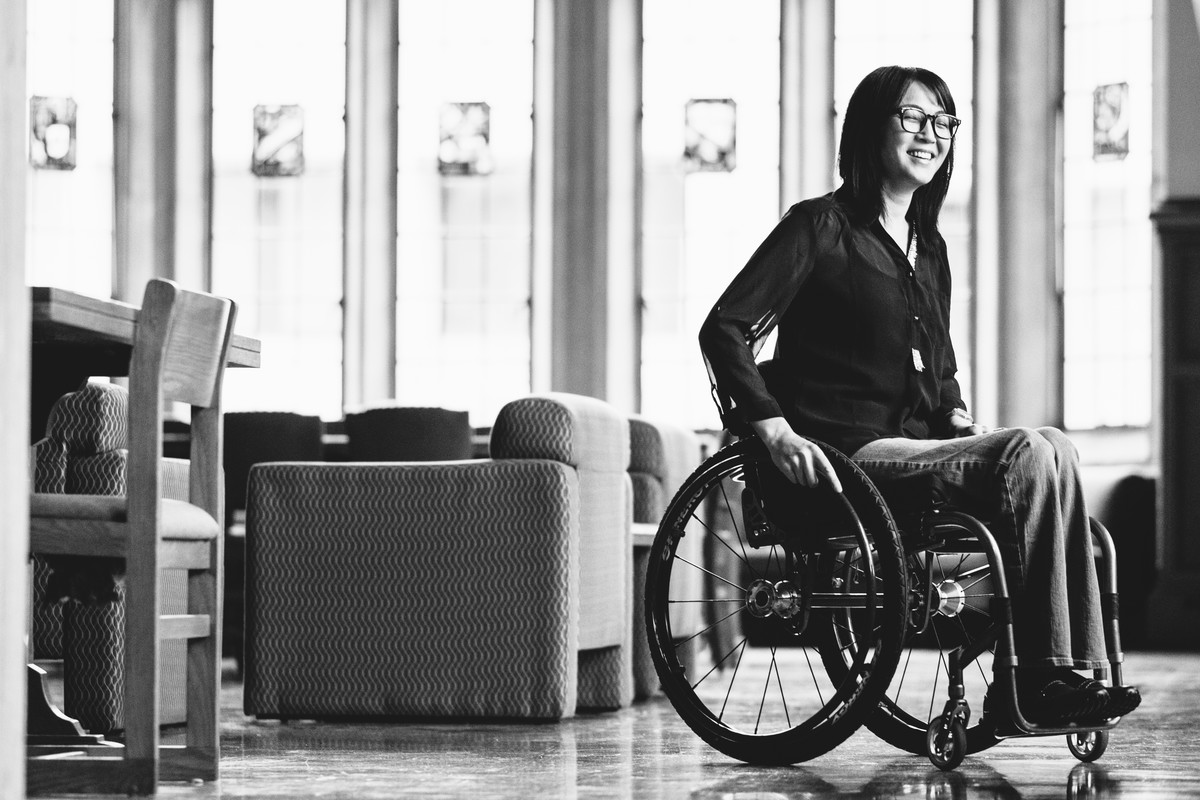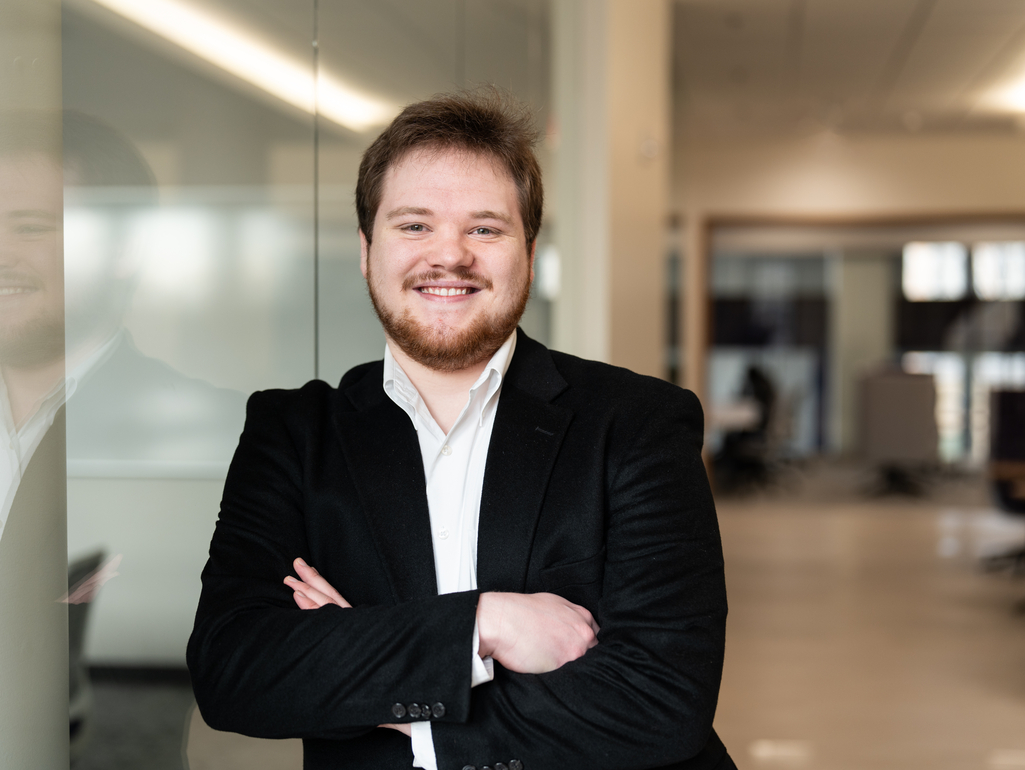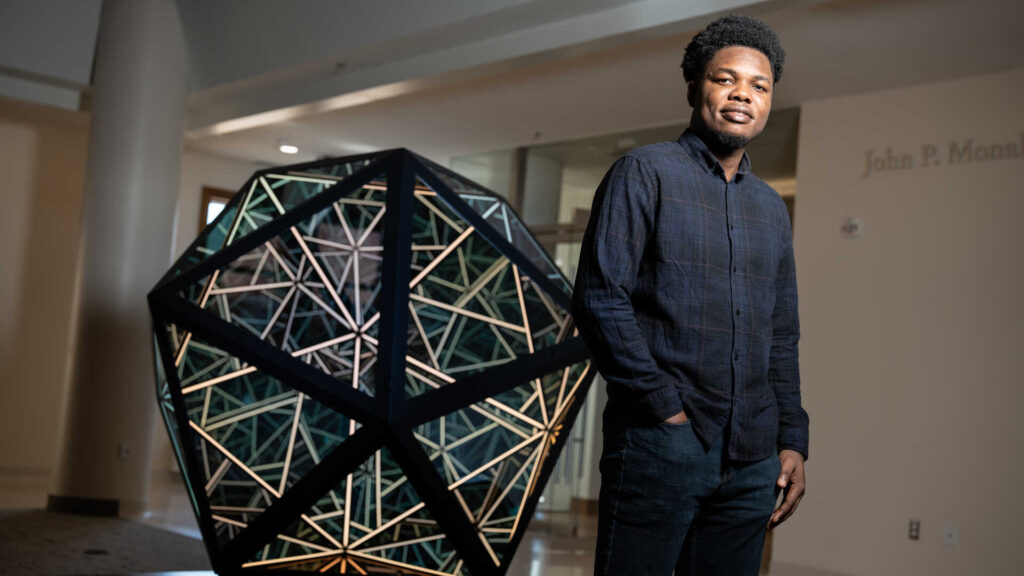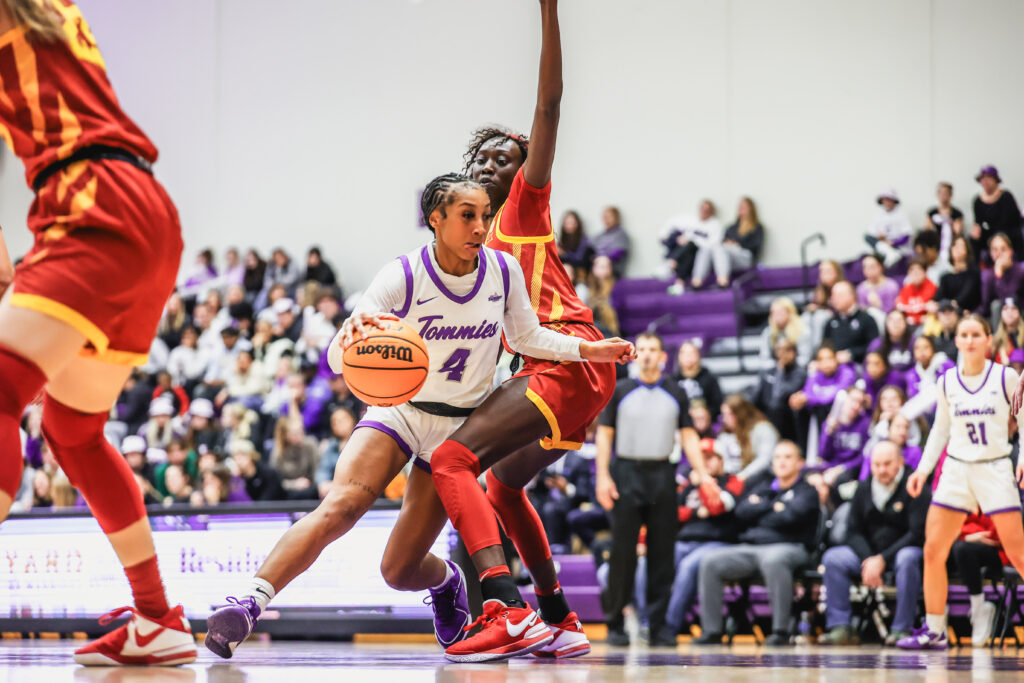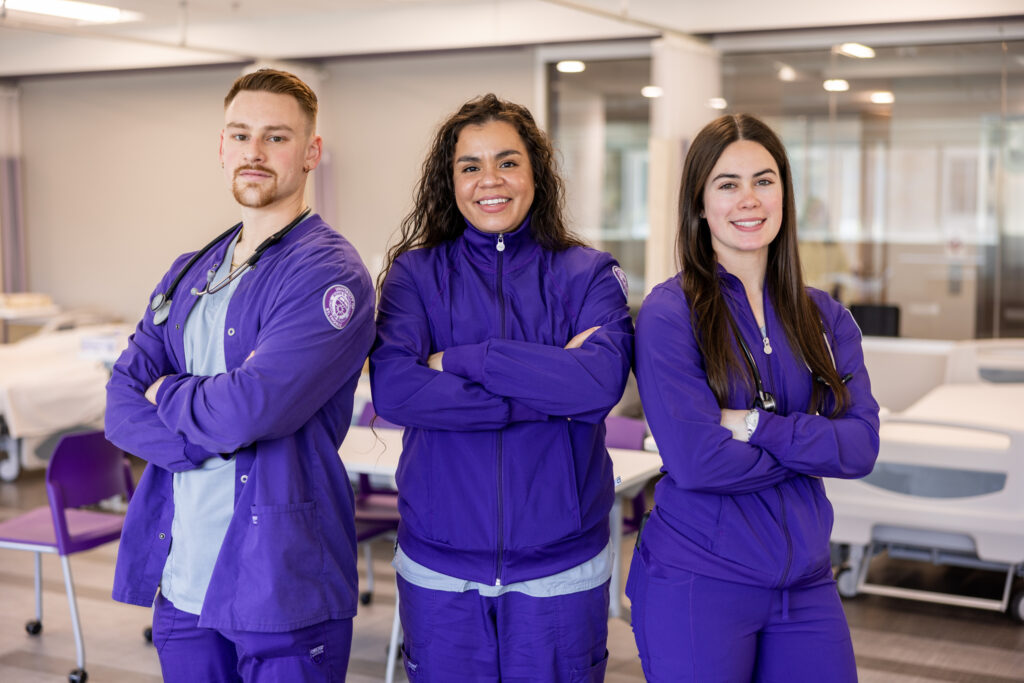During weeks when our world – even our own community – has been inundated with too much darkness, loss and anguish, it seems timely to shine a light on one beacon of what is right and good in the world. Luckily for me and everyone in COJO, among the brightest of those lights is a human right over here in OEC 119. Her name is Batoyun Uranchimeg. She goes by Oyuna (“Oh-you-na”), for short.
It’s difficult to write or speak her name without adding exclamation points (Oyuna! Oyuna!! OYUNA!!!). Her energy, strength and radiant spirit is, no question, multiple-exclamation-point worthy. And honestly, if you don’t agree when you get to the end of this feature (!!!!), I’ll be more than a tad surprised – even if you are theoretically, literally, emotionally, psychologically, sociologically and/or something-ologically opposed to the use of exclamations points.
Because in a world where there is so much pain and despair, there is also so much hope. So much resilience. And so much we can learn about moving in and through the darkness to emerge stronger and kinder as humans – precisely the thesis of Oyuna’s human journey, one she is ready to share with the place she now calls home: St. Thomas.
After 12 years at Hamline University, Oyuna(!) joined COJO 15 months ago as not only our super-smart administrative assistant, but also someone who administers an ever-positive, ever-wise approach to life, even when life dishes up the worst imaginable pain. She has an intense love of milk chocolate; prefers busy, productive and organized days; speaks profoundly about loyalty in friendship; and has an ever-pressing commitment to being a good mom. As my interview with her reveals, most of who she is and has become has been hard-won – and yet you will rarely find Oyuna(!) without the huge smile that seems to have taken up permanent residence on her beautiful face.
You grew up in Mongolia. What brought you to the U.S.?
I came to the States in July of 2000. I kind of accidentally – actually literally “accidentally” – ended up staying because I was in a car accident while I was visiting a friend here in Minnesota. It was my first time visiting the United States. My plan was just to spend a month or so, and return to Mongolia where I still had a job working as an interpreter and where I left my 6-year-old son.
So, you arrive in the U.S., you know only one person here and your life would forever change in an instant.
It was a week after I got here; I didn’t even know where the sun was coming from or where it was setting – because when you are in a new place, you have no sense of direction. Anyway, on that day, I went to see a movie with a new acquaintance and on the way back from the movie, we were in one-car rollover accident. The driver lost control at a roundabout exit, because he couldn’t slow down on time. I didn’t have a seat belt on and was ejected from the car. It turned out (the driver) was a fairly new driver who was just learning to drive and navigate the roads, but I had no idea that was the case. If I knew, I wouldn’t have come.
Are you comfortable sharing your memories of the accident?
I remember the car actually just tilting – I couldn’t believe what was happening. I was like “no!” What is going on? And at that point it seemed like a dream or like in between dream and reality. I couldn’t comprehend what’s going on but I realize it’s actually happening.
I gained consciousness briefly after I landed on the ground. I don’t know what position I was in, but I can feel the grass on my face. It felt like someone had just stabbed through my back. I couldn’t move. Or breathe.
Wow – so you were conscious of pretty much everything going on.
I saw the driver, the guy, just standing next to me and I asked him, “Are you OK? Is your car OK?”... It registered with me that I was in an accident but I didn’t know the extent of the accident at that time. I had thought maybe just my legs had broken. Then I remember paramedics – someone just tapping my face and saying, “Stay with me, stay with me.”
The pain was so bad, I can’t even describe it. It felt like if I just let go, the pain will be gone and I’ll be in peace. But then I’m thinking, “No, that would be the end.” And I started fighting – no I can’t go, I have a son.
I can’t go before my mom.
I can’t leave my son.
Next thing you remember is waking up in a hospital room?
I woke up feeling like I’m choking on something; it was the feeding tube put through my nose, and I had excruciating pain in my back. I realized that I’m still alive and am in a hospital.
I still thought I must’ve broken my legs.
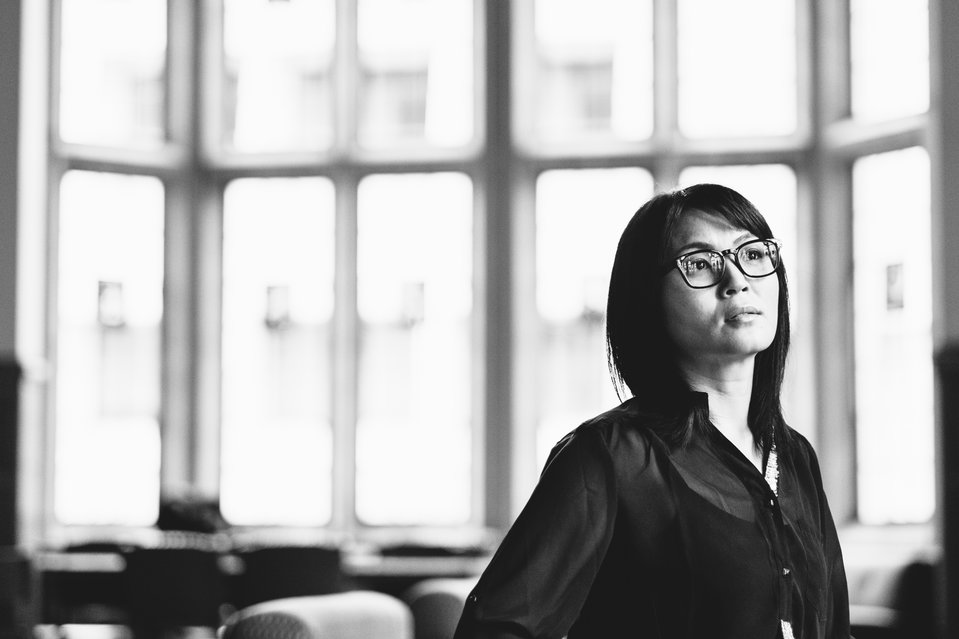
It was soon thereafter you learned it was more than broken legs – when they told you that you actually had severed your spinal cord?
Although I was an interpreter, my vocabulary was limited to the work I was involved in: at a power plant during a reconstruction project. I’ve hardly ever been exposed to medical terminology so I didn’t fully understand when they were talking about my injury. I learned I don’t feel anything below my waist. I thought it was temporary and I will regain the feeling after a few weeks or so. I asked the doctor how long I will be like this.
The doctor said, "I'm sorry, unfortunately you won't be able to walk again."
I started crying thinking of the simple things I used to do before – things like carrying my son in my arms, running up and down the stairs, and walking in the rain holding an umbrella. And I didn't have any of family members by my bedside to share my grief, because I was an ocean away from them.
Your mom, your son – they weren’t allowed to come?
My mom, my brothers and sisters, even my close friends, all applied for visas to get here, but they all got denied to come.
And it was just the year 2000, so there wasn’t all the digital communication – no cellphones, no social media.
I talked to them only on the phone using international calling cards. Actually, not so much talking, just whispering – because there was also something wrong with my vocal cord right after the accident.
It’s pretty impossible to even imagine what you were experiencing – what you were feeling, what you were going through.
Once I started grasping the reality of what was happening – what my life was going to be – I was very depressed and I wanted to die. I even scribbled a note to my family saying that I'm sorry and asking them to take good care of my son. I started collecting my pain pills with an intent to take enough of them at once and sleep forever.
I became completely dependent on others: going to bathroom, bathing, sitting up, dressing and transferring from the bed to a wheelchair. I was in diapers all the time and somebody had to change it. I pretty much lost all my dignities.
I cried nonstop for quite some time. Not eating. Not doing my therapy – not interested in living. I felt like there was no point of living if I'm not going to be back on my feet again.
And life in Mongolia as a person with a disability ... is...?
I had never seen anyone in a wheelchair in the streets of Mongolia, or knew anyone with a spinal cord injury. To my knowledge, there was no single building, street or any facility that was accessible for wheelchairs. There's no social structure that takes care of people with disabilities. So, I think you get the idea of what life was like for people with disabilities in Mongolia. I knew I was going to be a huge burden on my family.
Then you met a woman, Tammy, who would completely change your outlook, and give you some hope, yes?
The social worker arranged a visit of someone living with a spinal cord injury to come and talk to me. One day this woman in a cool-looking wheelchair – not the one I saw in the hospital – wheeled into my hospital room.
She introduced herself, asked how I was injured and shared her story of a horse riding accident when she was only 17. She talked about her husband, two kids and her work. She said she drove to the hospital. I was like “How is that possible?!”
… I asked her a lot of questions about how she does her personal care routine, because I wanted to know if I would ever be able to take care of my bathroom tasks. She shared very intimate information only the spinal cord–injured people share with each other such as bowel movements, catheters, pressure sore prevention, spasm, phantom pain. ...
It's all very useful information for someone who is newly injured and has no idea how these things are going to work.
When someone who has been through what you're going through talks about the same challenges you're facing and explains to you how she manages them on daily basis – it opens a totally new world possibilities to you. It kind of gives you hope.
… Until I met Tammy, the curtain of hope was completely shut for me and I didn’t even want to pick through it.
… I met with her multiple times after that. I visited her home and went to see how she actually lived. She gave me my first decent wheelchair – not the clunky hospital chair. Even though she was injured from a horse riding accident, she had a horse that she was training to sit so she can get on it to ride. She even let me drive, for the first time, with the hand control. She introduced me to the normal world after the spinal cord injury. For that, I'm forever thankful to her.
And is this when you knew you couldn’t go back to Mongolia?
Once I saw how Tammy lived, I wanted to be like her: working, raising my son and driving. But, I knew it was not going to be possible in Mongolia. All the things she was doing or is able to do were only in America not in Mongolia.
Fast-forward a few years: After much rehab, living in a nursing home with a 90-year-old roommate named Ruby, months of therapies, support received from local Zen Buddhist community and a pro bono immigration attorney – and even getting married and thus becoming a U.S. citizen (author’s note: The story is too long to tell it all here!) – Oyuna shared when and how her son and soon-to-be daughter came to live with her in Minnesota.
... Just imagine being away from your child when they need you the most. I get very emotional when I talk about this.
(Yep, we both cry.)
I missed eight years of my son’s childhood. I didn’t get to see him on his first day of school. I couldn’t be there on so many birthdays, New Year’s and holidays. He had never been separated from me, not even for a week, before I left. And then I was gone and couldn’t come back. And getting him here wasn’t an easy process either.
Finally, he came here when he turned 14! My son grew up together in the same home with my niece, so they were like siblings. My mother took care of the both of them, her grandkids, and I provided financial support for them once I started working. When my son came to the U.S., I felt like I’m separating the two siblings from each other. So, after talking to my family, I decided I would adopt my niece and bring her here as well. To my surprise the adoption process went pretty smoothly and her immigration case didn’t take too long either. … She joined us two years after my son arrived. I guess the three of us were meant to be a family.
Now, she’s a high school junior and my son is a college student. My daughter is coming to St. Thomas. I told her: “You don’t even have to look at other colleges!”
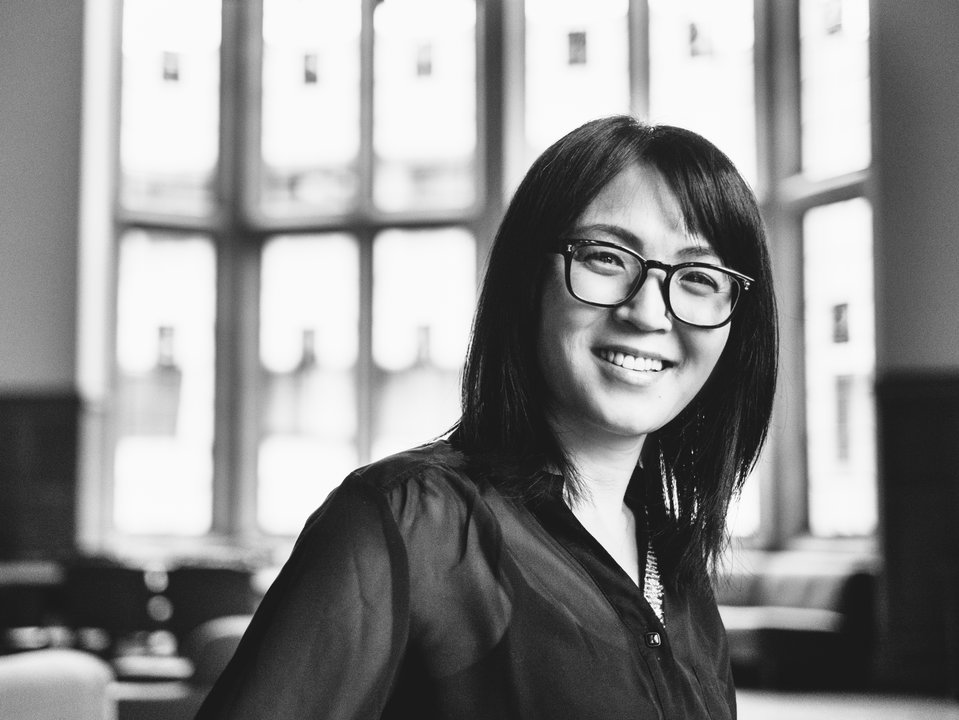
Let’s finish by talking about the day-to-day Oyuna – the Oyuna who is now a Tommie herself!
Does anything ever annoy you?
When people act like they are above others. Also, once in a while, I encounter with some strangers out in public who shows tremendous amount of pity toward me and says: “May God bless you.” Annoying!
If you wrote a book, what would the title be?
A lot of people told me I should write a book about my life experience. I don’t think I’ll ever write a book, but if I ever do, the title would be something like the Mongolian expression: “A parent with a child can’t die.” That basically means you can’t die before you fulfill your parental duties, like raising your kids. If I didn’t have a child, I probably would’ve been gone the day of the accident.
What’s your favorite thing about St. Thomas?
The people. Honestly, I’ve met some of the nicest people I know on this campus. Everyone I’ve met so far seems to be so genuine and care for others. Maybe it’s just me who hit the jackpot, or it’s actually how it is throughout the university. I truly feel valued and acknowledged for what I do. I feel like I have a space here.
